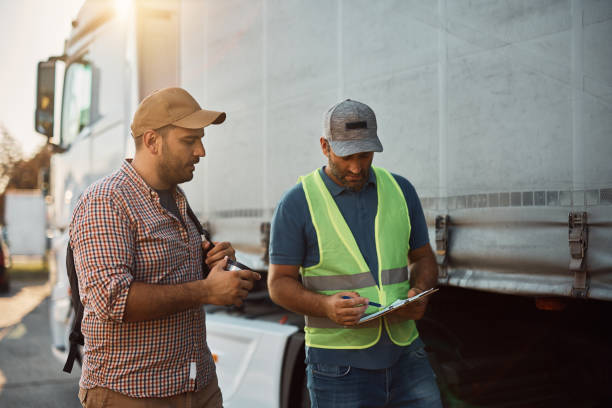Improving Communication Between Drivers and Dispatchers

In the propane industry, keeping deliveries on schedule and customers satisfied depends on strong communication between drivers and dispatchers. When communication breaks down, deliveries can be delayed, customers may be frustrated, and efficiency takes a hit. Ensuring that drivers and dispatchers work together effectively leads to better service and a more organized business. Here’s how to strengthen communication in this area and improve overall operations.
Use Clear and Reliable Communication Tools
The right tools make all the difference in keeping drivers and dispatchers connected. Two-way radios, mobile apps, and GPS tracking systems help drivers share real-time updates on deliveries and road conditions. Dispatchers need a reliable way to reach drivers quickly if routes change or emergencies arise. Investing in clear communication technology reduces confusion and keeps deliveries running smoothly.
Set Expectations for Regular Updates
Drivers and dispatchers should have a clear system for checking in throughout the day. Whether it’s scheduled updates or automatic alerts from tracking software, keeping everyone informed helps prevent delays. Dispatchers should know when a driver has completed a delivery, is facing a delay, or needs assistance. Regular updates ensure dispatchers can adjust schedules and notify customers when needed.
Train Both Sides to Work as a Team
Drivers and dispatchers play different roles, but they rely on each other to keep operations efficient. Training sessions that focus on teamwork, problem-solving, and handling unexpected issues help both sides understand each other’s responsibilities. When dispatchers recognize the challenges of being on the road and drivers understand the complexity of scheduling, they can work together more effectively.
Improve Route Planning and Scheduling
Accurate route planning saves time and fuel while reducing stress for both drivers and dispatchers. Using modern route optimization software helps dispatchers create more efficient schedules. This prevents last-minute changes and long delays that can frustrate both the driver and the customer. If changes do happen, having a quick and clear communication system in place keeps things on track.
Encourage a Culture of Respect
Dispatchers often work under pressure to handle multiple deliveries and customer requests, while drivers deal with traffic, weather, and unexpected on-the-road challenges. Miscommunication or frustration can create tension between the two. Encouraging a culture where both sides respect each other’s roles, listen to concerns, and work toward solutions together leads to better teamwork and a more positive work environment.
Businesses Benefits
For propane businesses, strong communication between drivers and dispatchers means fewer missed deliveries, happier customers, and more efficient use of resources. A well-connected team ensures that the propane reaches customers on time, reducing emergency calls and last-minute schedule changes. Investing in better communication tools, training, and teamwork strengthens operations and improves long-term business success. By making communication in this arena a priority, propane businesses can improve delivery efficiency, keep drivers and dispatchers on the same page, and provide the best service possible to customers.










